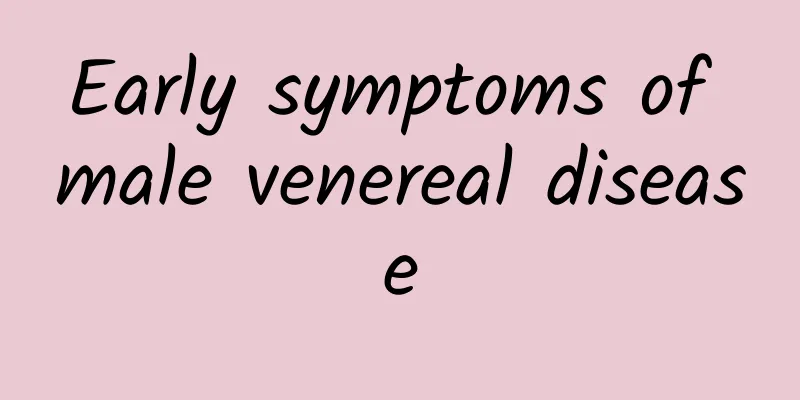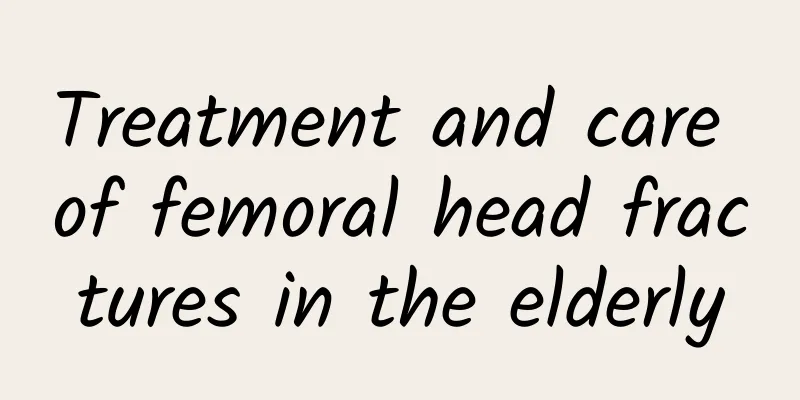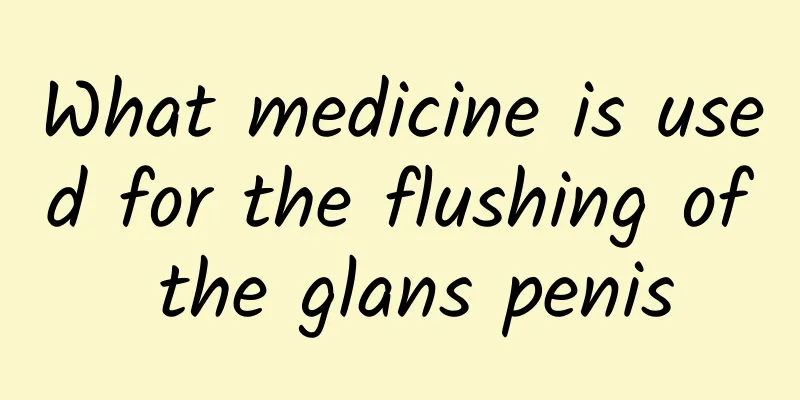Early symptoms of male venereal disease

|
Venereal disease is a series of sexually transmitted diseases, all of which are caused by abnormal sexual life. Venereal disease has a certain incidence rate in both men and women. Of course, people of different genders will have different symptoms when they develop venereum. In addition, the symptoms of venereum are related to the specific disease. Below, I will introduce the symptoms of male venereum! 1. Early symptoms of venereal disease 1. Syphilis (1) Primary syphilis is mainly manifested by the appearance of painless ulcers (chancres) in the genitals, which usually begin to appear 2 to 4 weeks after infection; (2) Secondary syphilis is mainly manifested by skin rashes and flat warts, as well as lesions in bones and joints, eyes, nerves, internal organs, etc. (3) The main symptoms of tertiary syphilis are severe damage to the nervous, cardiovascular and other major organs. 2. Gonorrhea Men often experience urethral overflow, and feel urinary pain, urgency, frequency, or itching; women experience vulvar itching and burning sensation, accompanied by purulent vaginal discharge. 3. Genital Chlamydia trachomatis infection The main symptoms are mucous or mucopurulent discharge from the urethra, painful urination, lower abdominal pain or pain during sexual intercourse. 4. Condyloma acuminatum The main manifestations are the appearance of single or multiple nipple-shaped, cockscomb-shaped, cauliflower-shaped or mass-shaped growths in the vulva, vagina, cervix and other parts. 5. Genital herpes The symptoms start with itching, burning, and pain in the genitals, thighs, or buttocks. Subsequently, multiple erythema, papules, and blisters may appear in the genitals, buttocks, anus, or other parts of the body. The first onset may also be accompanied by systemic symptoms such as fever and headache. 2. Diagnosis Generally, the diagnosis can be made based on the medical history, clinical manifestations and laboratory tests. It should be distinguished from non-infectious diseases of the genital area (Behcet's syndrome, contact dermatitis, erythema multiforme, fixed drug eruption), other infectious diseases (balanitis, acute vulvar ulcer, chancre-like pyoderma, Bartholinitis), skin tumors (Bowman-like papulosis), etc. 3. Treatment There are many types of STDs, and the pathogens that cause them are different. Therefore, a targeted treatment plan must be developed based on the patient's condition and cause, using a combination of oral medications, topical medications, physical therapy, and other comprehensive treatments. During treatment, the following aspects should be noted: 1. Formal treatment Strictly follow the doctor's instructions and avoid indiscriminate medication and irregular treatment. Many patients stop treatment once their symptoms are relieved or disappear, and do not complete the full course of treatment, or blindly use medication, which makes the treatment incomplete and brings difficulties to further treatment. 2. Track sexual partners and couples If the spouse/sexual partner fails to receive timely treatment, both parties may be repeatedly infected, resulting in the disease being difficult to cure. Therefore, it is emphasized that both husband and wife should be examined and treated together in order to eliminate the source of infection and prevent circulating infection. 3. Sexual intercourse is prohibited during treatment Patients with sexually transmitted diseases should abstain from sexual intercourse until they are cured, or at least use condoms for safe sex to prevent further spread of the disease. 4. Regular review For example, syphilis serological tests for non-Treponema pallidum antigens should be performed every three months within one year after completing regular treatment of syphilis, and every six months in the second year; gonorrhea tests should be performed on the 7th to 10th day and around the 14th day after regular treatment of gonorrhea, etc., to evaluate the treatment effect and prevent recurrence. 5. Adjust your attitude Some patients suffer from excessive psychological burdens and are troubled all day long. Even after they have been cured, they still feel various discomforts. |
>>: Causes of prostatitis in men
Recommend
Treatment for discharge from the penis
The discharge from the penis is indeed a difficul...
When should you not exercise? Muscle fatigue symptoms will tell you!
Men in modern society are under tremendous pressu...
What are male diseases?
In our impression, men are always synonymous with...
What can running do? Here are 8 benefits
Many working people today are no longer as intere...
How to fry garlic, garlic tastes better this way
Garlic is a vegetable with medicinal properties. ...
What is the normal blood pressure for a 50-year-old man?
Although the current medical level is getting bet...
What is androgen insensitivity syndrome?
Currently, many men suffer from androgen insensit...
What is the age of menopause? Menopause age
Whenever menopause is mentioned, most people thin...
Men take zinc tablets to increase sperm count
Zinc tablets are a kind of trace element necessar...
Can middle-aged men eat wolfberry?
Wolfberry is a traditional Chinese medicine that ...
What are the symptoms of stomach cold gastritis and how to treat it
Some friends say that they get stomach pain and d...
Purple nails for men
Kidney deficiency is a term in traditional Chines...
12 Kidney-nourishing and Male-enhancing Soups for Men
Soup dishes are rich in nutrients, so they are a ...
Why do men ejaculate during sleep?
When babies are young, they are not particularly ...
How to determine whether a thyroid nodule is benign or malignant
When it comes to thyroid nodules, they are clinic...









